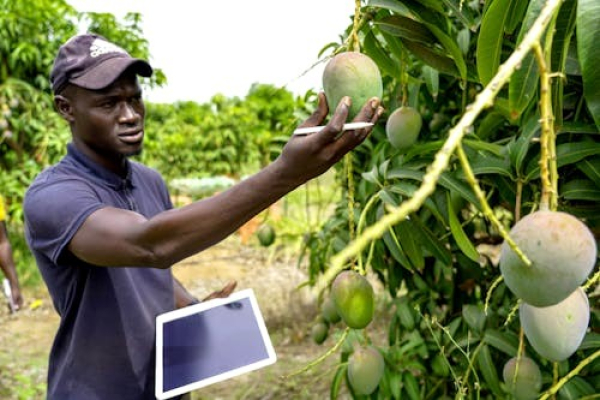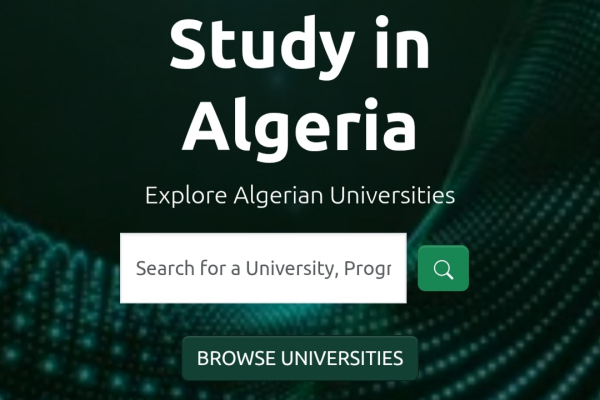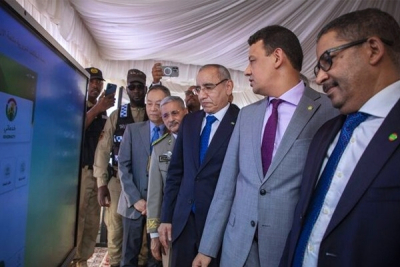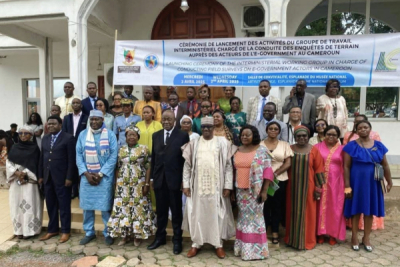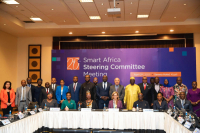Without a centralized system, fraudulent or inactive cooperatives could continue to receive support or partner with banks and donors. A digital registry increases accountability, ensures only verified cooperatives access benefits, and minimizes data manipulation or errors.
The Government of South Sudan, in partnership with the Food and Agriculture Organisation of the United Nations, launched, on Tuesday, April 8, a cooperative e-registry, a digital platform designed to streamline the registration and oversight of cooperatives across the country. The platform aims to enhance transparency, improve data management, and foster better coordination between agricultural cooperatives and government bodies.
At the launch event, Minister of Agriculture and Food Security Hussein Abdelbagi Akol described the initiative as a major shift from manual processes to a more efficient digital system. “The electronic registration is an innovation in the registration of cooperatives to foster, preserve information on cooperatives, and to know the status of the cooperatives at a glance and ensure stronger communication,” he said. He also emphasized the need for individuals to come together in groups to qualify for government support, signaling a push for more structured and organized cooperative efforts.
The platform is expected to enhance nationwide coordination of cooperatives, support youth engagement, and serve as a foundation for more data-driven agricultural development in South Sudan.
Food and Agriculture Organization (FAO) Country Representative Meshak Malo called on young people to embrace the platform and view agriculture as a modern, tech-enabled business opportunity.
For years, cooperatives in South Sudan have operated in a largely informal and fragmented system. There has been no central, reliable database to verify their existence, activities, or impact, Stephen Almadi, Head of the Cooperative Department at the Co-operative Bank of South Sudan noted. This led to duplicate efforts, inconsistent data, and limited coordination among stakeholders.
South Sudan has approximately 33 million acres of fertile arable land, yet only 4% is currently under cultivation, according to the Ministry of Agriculture and Food Security. This minimal usage highlights an urgent need for financial services to help farmers expand production. A centralized registry will help formalize and connect these farmers to financial institutions like Co-operative Bank, expanding access to credit and savings tools.
Hikmatu Bilali
- Platform offers details on academic programs, admission, application tracking, and student life
- Includes resources for embassies, cooperation bodies, and enrolled foreign students
Algeria's Minister of Higher Education and Scientific Research, Kamel Baddari, officially launched the "Study in Algeria" digital platform on Tuesday, April 8, in Algiers. Designed for international students looking to pursue their studies in Algeria, the platform is part of a broader effort to modernize the university system and boost its international appeal.
"Today, we are entering a new phase in the modernization of higher education and its opening to the world," said Baddari. "Algeria is increasingly seen as an attractive destination for international students, thanks to the global outreach we’ve initiated and the reforms undertaken to modernize our education system and improve its quality."
The platform offers a comprehensive overview of academic programs across Algeria, details on admission requirements, an online application portal, and real-time tracking of applications. It also includes practical guidance on administrative procedures, living conditions, and profiles of universities and research centers. Dedicated sections are available for embassies, cooperation services, and international students already enrolled in Algerian institutions.
This initiative follows the presidential decree issued in February, which lays out the framework for admitting foreign students to Algerian institutions, and forms part of the Higher Education Ministry’s five-year action plan (2024–2029). That roadmap prioritizes digital transformation and the expansion of academic cooperation at both regional and international levels.
The launch of "Study in Algeria" is a significant milestone in Algeria’s push to digitize higher education. The platform aims to enhance the country’s academic appeal, facilitate institutional exchanges, and position Algeria as a reputable study destination. By centralizing and streamlining access to university services, the initiative is expected to boost the global visibility of Algerian universities.
Samira Njoya
In just two years, this Tanzanian startup has rapidly established itself within the Fast Moving Consumer Goods (FMCG) sector. Now, leveraging its proprietary technology, the company is poised for regional expansion, fueled by a $1.5 million pre-seed funding round.
Sumet is an e-commerce solution developed by the Tanzanian startup Sumet Technologies. With its business-to-business (B2B) platform, it aims to streamline the distribution of fast-moving consumer goods across African markets. Founded in 2022 by Hazem Afify, Abdallah Omar, and Mahmoud Tawfik, the young company recently closed a $1.5 million funding round to strengthen its logistics infrastructure, optimize its AI-powered recommendation engine, and expand into new East African markets.
“At Sumet, we’re tackling one of Africa’s biggest challenges—enabling new brands to enter and grow in the market. [...] This funding is vital for strengthening our tech stack, bridging distribution gaps, and creating a dynamic, cost-effective ecosystem that empowers brands to scale effectively,” said Hazem Afify.
Thanks to an integrated logistics network and its web platform, retailers can order products from major brands in just a few clicks, with guaranteed delivery in under 24 hours in certain urban areas. For manufacturers, Sumet’s solution offers real-time sales tracking, better inventory planning, and increased visibility over final distribution points.
“Traditional distribution models often struggle to reach the fragmented and informal retail landscape. [...] We saw an opportunity to leverage technology to streamline the process, reduce costs, and create value for all stakeholders,” Hazem Afify added.
Sumet claims over 10,000 active retailers and processes more than 100,000 orders per month. This success is built on investment in data and automation, as well as a strong local deployment strategy, with teams on the ground in several regions of Tanzania. The startup plans to expand into Kenya, Uganda, and Rwanda.
By Adoni Conrad Quenum,
Editing by Feriol Bewa
- Mauritania launches digitized road traffic management system via “Khadamaty” app
- System enables online tracking of violations, fine payments, and complaint submissions
- Initiative aims to reduce bureaucracy, prevent injustices, and streamline citizen access to services
Mauritania launched a digitized road traffic management system on Monday, integrating it into the government's "Khadamaty" application. The system, overseen by the Interior Minister and his counterparts from the Ministries of Digital Transformation and Transport, aims to streamline traffic violation tracking, fine payments, and complaint submissions.
According to the Minister of Digital Transformation and Administrative Modernization, the system aims to reduce administrative burdens, eliminate unfair practices, and enhance citizen convenience. Users will be able to easily view vehicle offenses and pay fines online, eliminating lengthy delays and vehicle immobilization.
Developed through a collaboration between the General Directorate of National Security and the Ministry of Digital Transformation, the system aligns with President Mohamed Ould Cheikh El Ghazouani's "My Ambition for the Nation" initiative. This initiative prioritizes a modern, transparent, and citizen-centric administration driven by digital technologies. The recent launch of online criminal record payments exemplifies this approach.
This reform comes at a time when global indicators show that Mauritania lags significantly behind in e-government development. In 2024, the country ranked 165th in the United Nations E-Government Development Index with a score of 0.3491, significantly below the African average (0.4247) and global average (0.6382). Mauritania's online services score was notably low at 0.1688, lagging behind both African (0.3862) and global (0.5754) averages.
Beyond administrative efficiency, the system is expected to improve road safety by enhancing driver accountability and streamlining traffic management. An advanced digital platform, coupled with surveillance cameras, will bolster traffic control and promote greater road discipline.
By Samira Njoya
Editing by Sèna D. B. de Sodji
The Give1Project, in partnership with Concordia University and the United Nations Development Program (UNDP), has launched the second cohort of its Regional Cybersecurity Training Program to train 150 young people across West and Central Africa.
Participants will gain practical skills in cybersecurity and receive industry-recognized certification. They will also have access to mentorship, networking opportunities, and potential pathways to internships, employment, or entrepreneurship.
Applicants must be between 18 and 35 years old and be a citizen of one of the 24 countries in West and Central Africa. They must be currently enrolled in or have graduated from a university or technical institution.
The deadline for application is 17 April 2025.
- Cameroon has set up an interministerial working group on e-government to coordinate digital transition
- Group includes around 30 administrations and experts, led by the Ministry of Culture
- Tasks include conducting surveys, setting digital archiving standards, and ensuring system interoperability
Cameroon is advancing its multi-year program to digitize public archives, aiming to modernize document management and enhance information accessibility. To expedite this effort, an interministerial working group on e-government has been established to coordinate digitization across the public administration. The announcement came during a meeting held April 2 in Yaounde.
According to Minette Libom Li Likeng, Minister of Posts and Telecommunications, the initiative reflects "the government’s strong commitment to achieving a secure, structured, and strategic digital transition of public administration." She underscored the significance of digital archiving as a tool to bolster national data sovereignty and improve public service efficiency.
The newly formed interministerial working group on e-government comprises approximately 30 administrations and experts tasked with overseeing the national archives' digitization. Coordinated by the Ministry of Culture, the group will conduct field surveys, establish digital archiving guidelines, and structure an accessible and secure database. The group is also responsible for ensuring system interoperability and guaranteeing archive management adheres to international electronic governance standards.
This initiative is part of a broader reform effort to transform public administration, making it more responsive, transparent, and better equipped to serve citizens' needs. It aligns with efforts to optimize information management and enhance data security, critical components of good governance and national development.
The digital archiving of state records is projected to yield numerous benefits, including increased transparency within Cameroon's public administrations, reduced data loss risks, and streamlined citizen access to public information. Furthermore, effective archive management is expected to enhance the traceability of administrative decisions, reinforcing state accountability while lowering costs associated with physical archives.
By Samira Njoya,
Editing by Sèna D. B. de Sodji
Afrisends, founded by Zeinabou Sidibé Koné, seeks to "open up the world" for African consumers by simplifying foreign currency payments, customs fees, and cross-border logistics.
Afrisends, a Malian e-logistics startup founded in 2021 by Zeinabou Sidibé Koné, is simplifying international shopping and delivery for African consumers and e-merchants, beginning in Mali. The platform addresses the challenge of limited access to global e-commerce platforms for African countries.
Operating without a mobile application, Afrisends connects Malian clients with "shoppers" located in Europe, the United States, and China. These shoppers purchase desired products from various e-commerce platforms and facilitate delivery through a network of logistics partners. Afrisends manages coordination, tracking, and delivery, typically within 10 days.
Users can also place orders themselves, then submit order confirmations and invoices to Afrisends, which will handle delivery to Bamako, Mali; Dakar, Senegal; or Abidjan, Côte d’Ivoire. Afrisends provides comprehensive support through its platform. To place an order, users log into their customer accounts, click "Add" or "Create an order" in the designated section, and follow the provided steps.
The model relies on a community-driven approach and complete process digitalization. Afrisends also offers business-to-business (B2B) solutions, particularly for Malian e-merchants seeking to export or source goods internationally.
Since its launch, Afrisends has attracted over 10,000 users and continues to expand by diversifying its services and extending its coverage areas. The startup aims to expand throughout the sub-region and become a key player in African cross-border e-commerce.
By Adoni Conrad Quenum,
Editing by Feriol Bewa
Artificial intelligence is rapidly reshaping sports worldwide, and in Africa, it offers significant potential to modernize the sector, improve performance, and drive economic growth, especially ahead of major continental sporting events.
Africa is poised to host a series of major sporting events, including the 2025 Africa Cup of Nations (AFCON) in Morocco, the 2026 Youth Olympic Games in Senegal, and the 2030 World Cup, co-hosted by Morocco. These events present significant opportunities for economic and technological advancement, beyond their sporting significance.
A March 2025 report by multinational management and technology consultancy BearingPoint, titled "Intelligence artificielle et sport en Afrique," highlights the growing role of AI in organizing and enhancing sports events across the continent. The report identifies AI as a tool for large-scale optimization, modernization, and value creation.
AI for Optimized Organization
BearingPoint's report indicates that AI can revolutionize sports event management in Africa by optimizing key areas. This includes logistical planning, crowd control, security, ticketing, and visitor flow forecasting. For athletes, AI enhances performance through game data analysis, injury prevention, personalized training programs, and fitness monitoring. Spectators benefit from personalized offerings, optimized content delivery, and improved accessibility solutions.
The integration of these technologies throughout event organization could stimulate local economies, optimize resource management, and enhance Africa’s international appeal.
Measurable Economic Impact
The economic impact of major sporting events is substantial. The 2010 World Cup in South Africa generated approximately 130,000 jobs and $385 million in revenue, while the 2019 AFCON in Egypt yielded $83 million. AI can maximize these returns by refining demand forecasts and optimizing service efficiency.
This trend aligns with global momentum. A Mordor Intelligence study projects the AI market in the sports industry to grow from $5.93 billion in 2024 to $20.94 billion by 2029, with an average annual growth rate of 28.69%. This growth reflects increasing interest in AI within the sports sector.
A dynamic SportsTech ecosystem is emerging in Africa, blending sports and innovation. In 2023, investments in this sector reached $5.3 million. AI is being utilized for talent identification, performance enhancement, injury prevention, and infrastructure management. This movement, driven by startups, incubators, and sports institutions, has the potential to drive sustainable growth.
Addressing Key Challenges
However, significant challenges remain. These include a lack of robust digital infrastructure, insufficient investment, a shortage of specialized skills, and the absence of a clear regulatory framework for personal data management. Stronger public-private sector collaboration is essential to overcome these obstacles. This includes implementing appropriate infrastructure, developing local skills, and establishing suitable regulatory policies.
By integrating AI throughout event preparation and organization, African sports events can become catalysts for digital transformation. AI is positioning itself as a strategic lever for modernization and enhancing the continent's attractiveness.
By Samira Njoya,
Editing by Sèna D. B. de Sodji
Global payment technology giant Mastercard announced on April 3 a partnership with Nomba, an African payment solutions provider. The collaboration aims to deliver faster, safer, and more seamless payment experiences for businesses across the country while advancing financial inclusion.
As part of the partnership, Mastercard’s trusted Gateway platform will be integrated into Nomba’s Checkout solution. This integration enables businesses to access a broader range of secure payment options, including international cards, QR codes, and other digital methods, thereby enhancing customer experience and boosting operational efficiency.
- Smart Africa alliance announces creation of African Artificial Intelligence Council
- Council to coordinate AI development across 40 African nations
- Focus areas include computing infrastructure, data governance, skills development, and industrial applications
Smart Africa, an alliance of 40 African nations driving the continent's digital agenda, announced the formation of the African Artificial Intelligence Council on April 3. The decision, made during the organization's 20th steering committee session in Kigali, seeks to structure AI development through governance frameworks and increased investment.
"In a historic decision, the steering committee approved the creation of the African Artificial Intelligence Council, a dedicated body to lead continental coordination on key AI pillars, including computing infrastructure, data management, skills development, industrial applications, and governance," the meeting's final communiqué stated.
The council will support African states by defining common AI frameworks, fostering public-private partnerships, and ensuring ethical and inclusive adoption. It will also accelerate digital infrastructure deployment and local talent training to maximize AI's economic and social benefits. AI has the potential to transform sectors such as agriculture, health, and education, where machine learning and data processing solutions are emerging.
This initiative aligns with African countries' efforts to leverage AI for growth. The Global System for Mobile Communications Association (GSMA) estimates AI could add $2.9 trillion to the continent's GDP by 2030, representing a 3% annual increase. However, AI development in Africa is hindered by coordination gaps, inadequate infrastructure, and nascent regulations.
The African AI Council aims to address these challenges by establishing a shared framework to attract investment and promote locally tailored solutions. It will also assist countries in tackling issues such as insufficient computing infrastructure, specialized skills shortages, and ethical considerations surrounding AI use.
By Samira Njoya,
Editing by Sèna D. B. de Sodji
More...
Face aux défis de la modernisation, de nombreux pays misent sur la transformation numérique pour améliorer l’accès aux services publics. La numérisation des documents officiels, notamment les diplômes, devient une priorité pour renforcer l’efficacité administrative.
Mauritania's government is developing a digital diploma system to modernize issuance and enhance authenticity.
The project's framework was discussed at an April 2 meeting at the Ministry of National Education and Education System Reform, chaired by Minister Houda Mint Babah, and attended by Digital Transformation Minister Ahmed Salem Bede. The system aims to directly link diplomas to the civil registry, ensuring traceability and simplifying citizen access.
Graduates will be able to retrieve certified diplomas via the "Houwiyeti" (My Identity) app, a digital platform for public services already used for birth certificates and passports. The app will streamline access to diplomas, particularly baccalaureate and preparatory education certificates, reducing administrative burdens.
This initiative is part of a broader government digital transformation program. Last year, Mauritania announced a $30 million investment to modernize digital infrastructure and develop public service solutions. However, Mauritania lags in digital administration. In 2024, it ranked 165th globally on the United Nations e-Government Development Index, with a score of 0.3491 out of 1, below the African average of 0.4247 and the global average of 0.6382.
By integrating diplomas into its digital registry, the government aims to simplify access to official documents, combat forgery, and enhance certification reliability. This digital shift is crucial for improving transparency, increasing administrative efficiency, and facilitating graduate integration into the national and international labor markets.
- TikTok removed 8 million videos in Sub-Saharan Africa in Q4 2024
- In North Africa, 7 million videos were taken down in the second half of 2024
TikTok removed eight million videos in Sub-Saharan Africa during the fourth quarter of 2024 for violating community guidelines, up from 7.5 million in the previous quarter, the company announced. In North Africa, seven million videos were taken down in the second half of 2024.
The increased removals reflect heightened moderation efforts across the continent, where several countries have criticized the platform for inadequate content control.
The figures were disclosed at the second annual African Summit for a Safer Internet, held last week in Cape Town, South Africa, which convened government officials, regulators, and industry stakeholders from South Africa, Nigeria, Ethiopia, Cameroon, Côte d’Ivoire, and Kenya. Discussions centered on online safety, content moderation, and the development of Africa-specific digital policies.
"Billions of people come to TikTok every day to create, share and connect and we're continually evolving our policies and practices to safeguard our platform so our community can discover and do what they love," said Helena Lersch, TikTok's Vice President of Public Policy.
Several African nations have recently taken action against TikTok. Senegal blocked the platform in August 2023, citing its role in disseminating hateful and subversive messages that threatened national stability. Before service restoration in February 2024, the government demanded assurances on moderating content deemed contrary to national values and public morals.
Somalia suspended TikTok in August 2023, alleging its use for distributing violent content and disinformation. South Sudan suspended the platform for a week in January 2025 following the circulation of graphic videos showing violence against South Sudanese nationals in Sudan. "The rise in violence linked to social media content in South Sudan underscores the need for a balanced approach that addresses the root causes of online incitement while protecting the rights of the population," said Napoleon Adok Gai, Director General of the South Sudanese Communications Authority.
In Kenya, during April 2024 parliamentary debates over a proposal to suspend TikTok for alleged propaganda, fraud, and sexually explicit content, the government opted for a co-regulation model. Similar regulatory discussions have occurred in Morocco, the Democratic Republic of Congo (DRC), and Burkina Faso.
Despite the increased moderation and video removals, concerns persist about the effectiveness of TikTok's measures. A BBC investigation published March 3, 2024, revealed serious abuses, including young users' exposure to explicit sexual content, from which the platform allegedly indirectly profits. A July 2024 report by the Mozilla Foundation and AI Forensics highlighted security flaws in TikTok Lite, used in developing countries, that facilitate the spread of inappropriate content.
By Isaac K. Kassouwi,
Editing by Sèna D. B. de Sodji
As fintech adoption continues to grow, companies like Djamo could be instrumental in helping millions transition from cash-based economies to fully digital financial systems, unlocking new economic opportunities and driving financial empowerment across the region.
Ivorian fintech Djamo has secured $17 million in funding to accelerate its expansion across Francophone West Africa. The digital banking platform, which serves over one million customers in Ivory Coast and Senegal, aims to bridge the financial access gap by providing affordable and accessible banking services.
The equity round was led by pan-African, gender-focused VC Janngo Capital, with participation from SANAD Fund for MSMEs, Partech, Oikocredit, Enza Capital, and Y Combinator. The new funding surpasses Djamo’s $14 million Series A in 2022 and signals growing investor confidence in its mission.
Djamo positions itself between mobile money and traditional banks, offering a digital-first banking experience with the flexibility of mobile money but the financial depth of a full bank account. The startup has introduced savings vaults, investment products, salary-linked accounts, and merchant payment tools, strengthening its value proposition.
With its latest funding, Djamo aims to strengthen its footprint in Senegal and expand across other Francophone African countries. As of 2021, 56% of adults in Senegal had an account, exceeding the Sub-Saharan African average of 49%, according to the World Bank. However, the majority (28%) held only mobile money accounts, which lacks advanced financial tools like credit and investments, highlighting the need for more comprehensive financial services.
Djamo’s expansion into Senegal and other Francophone African markets could significantly boost financial inclusion by bridging the gap between mobile money and traditional banking. By offering accessible banking services, Djamo can help transition mobile money users to a more comprehensive financial system, fostering economic empowerment, savings culture, and business growth in the region.
Hikmatu Bilali
Global development by 2050 requires combating global warming, a challenge that necessitates strong private sector involvement, especially from startups, alongside political action.
Tunisian startup MEPS (Methane Energy Production Solutions) secured second place at the Orange Summer Challenge (OSC) International 2024 with its intelligent, mobile, and autonomous biodigester, a technology designed to transform organic waste into biogas and natural fertilizer, reducing treatment costs and environmental impact. The innovation is spearheaded by Khouloud Ayachi, pictured, and her team.
Two years ago, Ayachi, whose family background includes farming and livestock breeding in Bargou, witnessed the economic hardship forcing her uncle and neighbors to sell their herds. This prompted her to develop a solution enabling farmers and breeders to sustain their livelihoods while generating added value. Drawing on her 2022 professional Master's degree in Environment and Physico-chemical Analysis of Industrial Soils from the Faculty of Sciences of Monastir, she launched the MEPS project.
The biodigester operates through a simple process: organic waste is introduced and "naturally transforms to produce biogas and biofertilizer." The biogas is stored for use in cooking, water heating, or powering agricultural equipment, while the biofertilizer is used to enrich soil, replacing chemical alternatives. Users can monitor biogas and fertilizer production via a mobile application and receive resource optimization advice. A chatbot provides on-demand assistance, and the system includes safety mechanisms to prevent gas leaks and flame hazards, Ayachi explained.
Developing the MEPS biodigester presented significant challenges, including financial constraints and the integration of complex safety features. With support from the Orange Summer Challenge, specifically through the École du Code and Fablab Solidaire, the team developed a high-performance prototype. They are now seeking funding to refine the solution and finalize a safer, more efficient product. "These experiences taught us the importance of innovation, collaboration, and perseverance. Thanks to our partners' commitment, MEPS is on track to become a comprehensive solution," said Ayachi, MEPS founder and CEO.
While initially targeting farmers and breeders, MEPS envisions expanding its technology to revolutionize organic waste management and reduce CO₂ emissions in the restaurant, hospitality, and industrial sectors, as well as for domestic use, in Tunisia and beyond. This ambition is fueled by the growing African and global greentech sector. "Demand for innovative and sustainable solutions is increasing. Businesses and consumers are more aware of environmental impact, and many industries are seeking alternatives to reduce their carbon footprint. We see this shift as an opportunity to diversify our solutions and meet a range of needs," Ayachi said.
Following their OSC International 2024 success, MEPS is preparing for real-world testing to ensure the biodigester meets user needs. Concurrently, a continuous improvement process will optimize the technology, business model, and services before scaling up. The goal is to establish a sustainable company capable of addressing future environmental and economic challenges.
Muriel EDJO


